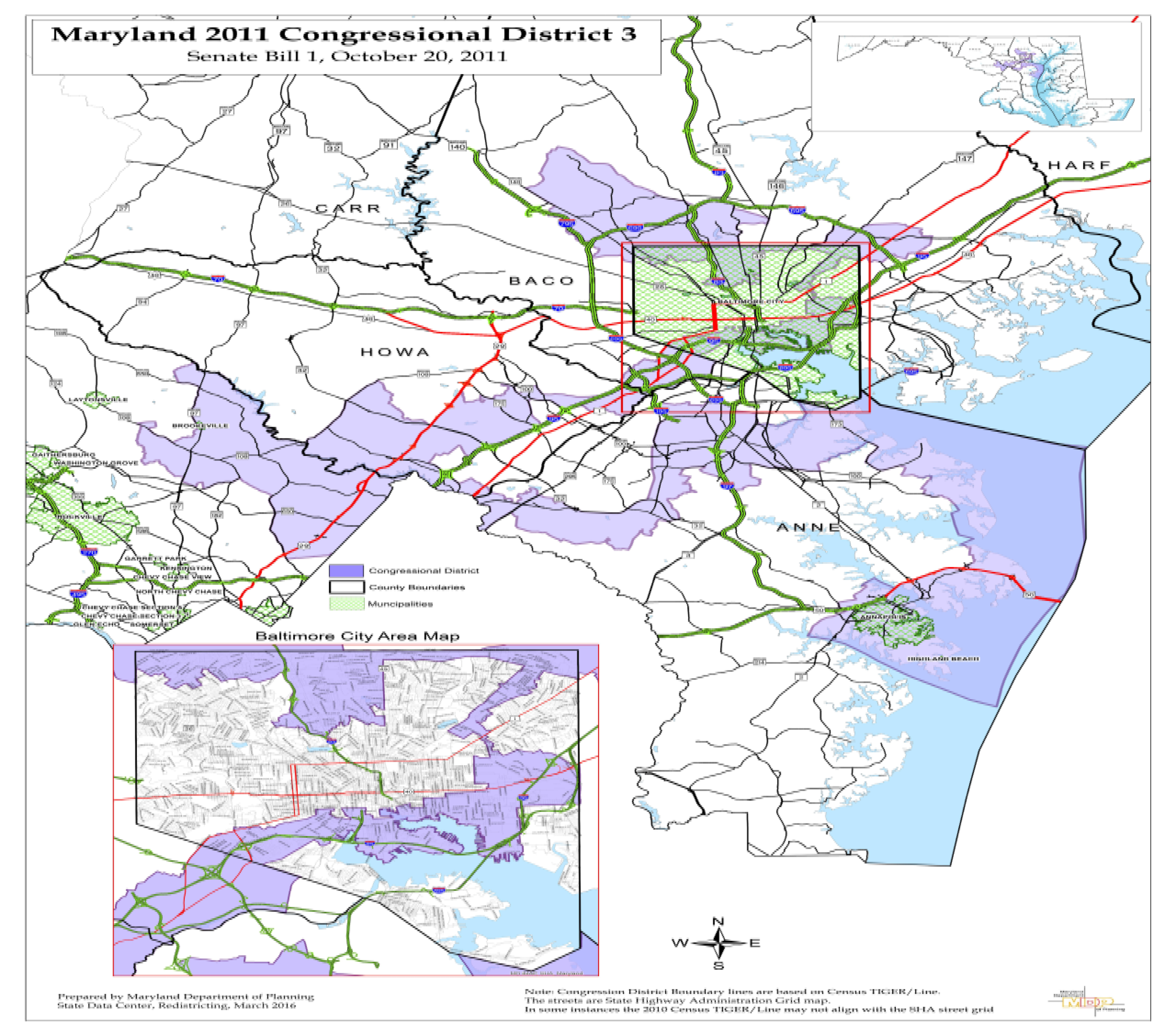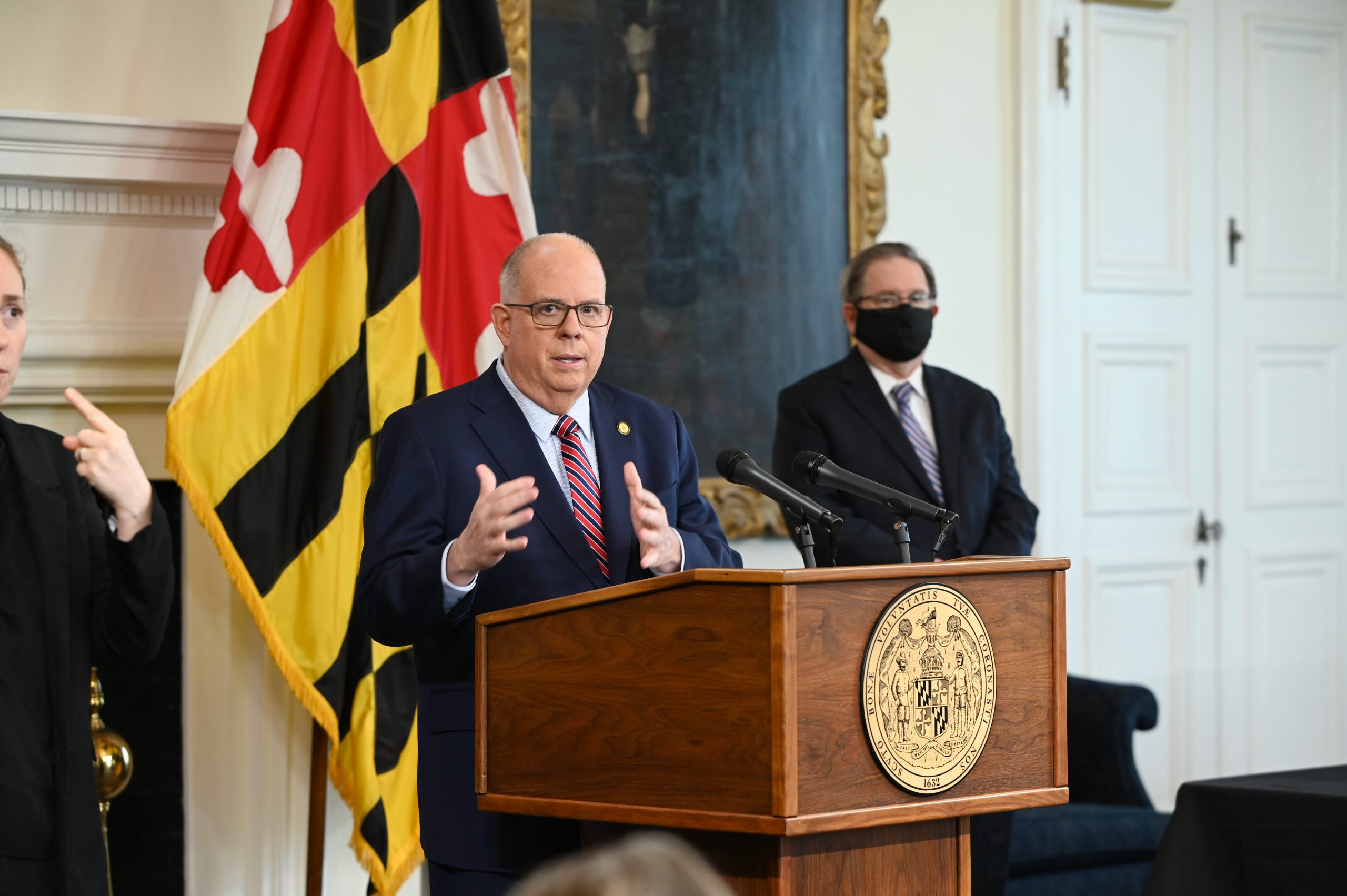BOWIE, Md. — In the latest effort to resolve a gerrymandering issue in the state, Gov. Larry Hogan, R, this month announced the formation of the Maryland Citizens Redistricting Commission.
Hogan’s executive order comes 18 months after the Supreme Court declared that federal courts had no jurisdiction in resolving the issue of partisan redistricting.
In a 5-4 court decision, Chief Justice John Roberts argued that the burden of adjusting the redistricting process fell on the legislative branch.
The governor said he had tried to introduce a Redistricting Reform Act five times, but none of the bills gained traction in the Democrat-controlled General Assembly.
The commission would be in charge of redrawing legislative maps that have been the subject of criticism from advocates and the challenge in the Supreme Court.
The nine-member panel will consist of three Democrats, three Republicans and three independent voters.
Members of the commission must be registered Maryland voters who have either registered for the same party or remained unaffiliated for at least three years.
Lobbyists, political employees or representatives for office in the General Assembly or Congress are ineligible.
Three members who will serve as co-chairs on the committee are:
- Judge Alexander Williams, a registered Democrat, served as a district court judge in Maryland for 10 years.
- Dr. Kathleen Hetherington, an independent voter with a doctorate in education, is the current president of Howard Community College.
- Walter Olson, a registered Republican and senior fellow at the Cato Institute, authored two studies on gerrymandering in Maryland.
Co-chairs will have final say on who occupies the remaining six seats on the panel.
Once chosen, the commission will come up with redistricting maps with respect to population and geographical borders.
Redistricting maps are redrawn and voted on by the General Assembly after each census.
Common Cause Maryland, a redistricting reform advocacy group, said that the commission “helps our collective efforts to ensure Maryland’s line-drawing process is open and transparent.”
The commission’s makeup and its duties were drawn from recommendations of a bipartisan 11-member Redistricting Reform Commission the governor ordered in August of 2015.
The commission, of which Olson and Williams were co-chairs, released a 62-page report on the issue in November of that year.
The report found that legislatures in charge of redistricting had “an incentive to produce redistricting maps that favor their particular party.”
Even state houses with split-party control face issues, according to the commission, as both parties tend to favor maps that protect their current members.
Maryland has seven Democratic members of the U.S. House of Representatives compared to one Republican, despite Democrats outpacing Republicans by a ratio of 2-to-1.
Hogan made redistricting reform one of his talking points during his 2014 campaign just two years after maps were redrawn by then-Gov. Martin O’Malley, D, after the 2010 Census.
The maps drew voters from Democratic strongholds in Montgomery and Prince George’s counties as well as Baltimore into more traditionally Republican districts.
That resulted in heavily edited districts, including what the Washington Post called “The most bizarrely gerrymandered district,” Maryland’s third.

District three, which extends from north of Baltimore out to Montgomery and Anne Arundel counties, earned the dubious title of the nation’s most gerrymandered district by the New Republic.
District three’s makeup was an example of how “a healthy and strong two-party system” was impossible in Maryland according to Hogan.
While Hogan championed the commission as a way to curtail partisan map redistricting, its ability to do so is ambiguous.
Any new maps proposed by the redistricting commission have to be approved by the General Assembly before they take effect.
Redrawn maps that provide equity to both parties could still be rejected by the Democratic supermajority in Annapolis.
Some have criticized the governor’s efforts on redistricting as the state continues to grapple with the COVID-19 pandemic and a sluggish vaccine rollout.
“It feels like political theatrics at a time where Marylanders are struggling in ways that are unimaginable,” Senate President Bill Ferguson, D-Baltimore said during a Jan 15 press conference.
A date for the first meeting of the Maryland Citizens Redistricting Commission has not yet been set.


You must be logged in to post a comment.